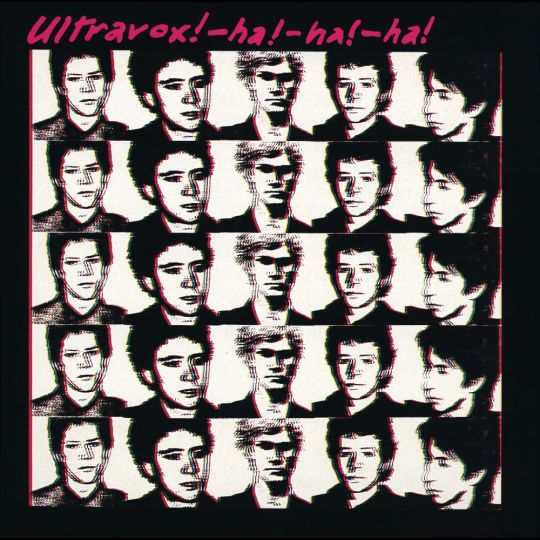#artificial life
Text
Childhood Headcanons
These particular, sort of apocryphal headcanons (depends on who believes what after all) provide further context for the brothers' childhood under the constraints of my canon-divergent fic, "When Lightning Falls," that was proved wrong by canon after the release of Fall.
There's also an accompanying Creation Theory I made up, to provide context for the fic, which becomes especially relevant here.
And, if anyone's wondering, this post has been around for far too long—I just never posted it some while after the fic itself was done. I have a lot of stuff on backlog anyway, and figured I may as well edit and post this.
⸻
Note:
Most of these thoughts focus on Rafal, and there is a slightly dark undercurrent that runs throughout this post.
⸻
First, the brothers were originally foundlings, like in the fairy tales of yore.
Fittingly, they have been the youngest and the oldest beings ever to live at the School, at different points in time.
At first, they led a deathly existence, an insecure, unstable one, with potential death at every turn.
Rafal became used to death threats, and being called "demon spawn." He hardened in response. Ever townspeople tried to ward him off, but their feeble sigils did no good, did no true harm against him and his latent sorcery, even whilst he was still learning magic.
They were found, possibly, doddering around in the Woods, on the outskirts of the School, at somewhere from three to five years old? So, they conveniently have little to no memory of their existence beforehand, as vagrants, outcasts, rejects, waifs, who knows—they were alone in the world.
The twins crashed through the brambles, clothes torn, faces scratched, scrapes on their limbs, drenched by the rain, just... waiting to be taken in like strays, as if they simply... appeared.
Rhian trailed after Rafal who forged a path ahead, until they emerged in the light of a clearing, as if guided by the hand of fate, to the School for Good and Evil.
Shortly after their discovery, they became the youngest students to ever attend the school.
Of course, taking them in was the Good thing to do, but perhaps, if we let conspiracy run rampant, the Storian had a hand in the proceedings.
Oddly enough, the Pen just might have brainwashed all the faculty to come to the unanimous agreement of raising the brothers as their own, among the lot of them. How odd that they agreed for once, the one time in decades that Good and Evil have agreed on any matter.
It was probably done for the greater fate of the Woods, the way they were all swayed by the Storian, nearly unconsciously.
And so, they came to terms with the new status quo because there seemed to be something behind this decision of the Pen's, that was greater than they could ever know, or so they believed.
They accepted it. They didn't question it because it was so obviously the Storian's doing. Controlling their minds that had already been made for them. No chance to decide for themselves.
But, they let the Storian handle it, handed over all control to the Storian. Because, no one, not even the highest ranking sorcerer or fairy godmother of either School, or lord or lady could have taken issue with what the Storian did. No one went against it. No one could. Contradicting it would have been a death wish just waiting to happen.
And they all knew that. They knew that very well, considering the nature of the tales they taught.
Eventually, they came to the common conclusion that these children must have been their future School Masters.
Thus, they took the Storian's apparent decision to heart because it wasn't their place to step in.
No one could overrule the Pen, so they lived with it, and continued to train the mysterious, foundling brothers—while they worried for their lives and all that was to come.
That particular set of faculty became a little like the brothers' parents, until they died off, one by one, each from old age or the occupational hazards of working at such a School.
Their professional lives were demanding and they didn't pay as much attention to the brothers as they should have.
All they could do was follow through and hope the Pen had charted the right course, that it chose well in the end.
Even if they would never live to see the future, they were aware they had played a monumental role in securing safety and balance for the Woods, by acting as these children's first, human influences.
⸻
"When Lightning Falls" takes place around three years after the brothers' arrival, when they're about seven, so they've had time to have grown used to the schools.
Everything has become a bit mundane to them. There's nothing new because it's all they've ever known and grown up with, unlike the incoming students' experience of the manor every four years.
So, they've never been around peers their own age, which led to Rhian feeling special and becoming fragile with no challengers and to Rafal gaining a massive superiority complex.
During those years is when Rafal starts on his skepticism, early in life.
Rafal starts to question the Pen, and ask why of everything and everyone that can possibly answer him, or that would answer him if he persisted and probed enough, and didn't relent. And he threatens his way to the answers, to get his way, to figure out what makes everything in this world of theirs tick.
It's the only way he knows, to bribe or exchange, even unethically, or to beat and to hassle information out of others, to trap them in their own bedchambers or offices and not release them until they answered him or fulfilled his demands.
He learned the word "leverage" early on, and the Evil faculty thought he was a prodigy.
He doesn't know any other way because the Never faculty took him in first, claimed him as one of their own. They took a liking to him and his silence, over his crybaby brother.
Predictably, the Never faculty were rough around the edges and they never showed displays of pleading and begging, so Rafal never did that, even as a child.
He never learned the art of apologizing either. Everyone was remiss to let that pass by... but it was too late.
He refused to resort to such means as begging, to lower himself in that way, like Rhian would, even at such a young age, because he wasn't taught mercy. He was told kindness was a weakness and that justice was right. And so, even as a young child, he maintained an adult-like level of dignity in how he conducted himself, always.
Meanwhile, he'd look on at his brother, and wonder: why is he acting so childishly? Having Evil imposed on him forced Rafal to grow up sooner, before his time.
Evil taught him never to whine and whinge, to never cry to get his way. He could already get his way, by other, more sinister means. Cleverer, more artful, more guileful means besides, and in doing so, he could still feel superior, boosting his ego, inflating it and inflating it as a result.
So, that was what he'd grown up around. It was the natural way of things, to him.
At least, this is how children ought to be treated in his eyes, simple as that. And he turned out fine, didn't he? Of course he did. No question about it. He's him, and he's great. The best. Superior to all others, everyone else in his school.
He probably considered himself the smartest little boy alive, not necessarily the most knowledgeable, but the most clever or capable of outwitting others, of negotiating deals, and plotting schemes and doing other, crooked deeds. He thought himself smart in that artful sense, skilled to the point that he could outfox adults over twice his age, outdoing the teenage students in everything he did.
Oh, and if certain knowledge were established as forbidden? Rafal would still try all the more diligently to go after it. That's how he contended with all things.
And what of Rhian? To Rafal, Rhian was naive. Secretly, Rafal never considered Rhian his match. No way, no how. That brother of his couldn't tell Good from Evil in the simplest of challenges.
The Evil faculty were decently well-meaning, thinking Rafal would be good villain material, but again, they weren't exactly attentive or warm or caring like Good's faculty was in "parenting" Rhian.
They weren't neglectful either, but still, Rafal was left to his own devices outside of lessons, and he grew accustomed to being alone when Rhian wasn't around to play with him. Not that he really played that frequently.
Thus, time passed, and the staff believed the twins to be foundlings. That they were adopted, taken in under their wings. Children of the School.
In reality, the twins were children of the Storian.
Everyone knowingly buys into the lie because they didn't want to think beyond the present. They wanted to believe the brothers were of woman-born, abandoned, and insignificant. But, the truth could only be delayed, not buried.
The brothers are foundlings, they all said, persistently. That's what most of the faculty believed, and that's what the brothers were led to think.
Yet, a select few knew their actual purpose of existence: the brothers were not being trained up to follow the Rules of fairy tales themselves—they were being trained up to rule. (Or rather, "rule" as figureheads for the greater Pen.)
They were bound to the School grounds, and only a few people, none in living memory, knew they belonged to the Storian...
⸻
Any thoughts anyone?
#school for good and evil#rise of the school for good and evil#rafal#rafal mistral#rhian#rhian mistral#sge#sfgae#the school for good and evil#tsfgae#rotsge#rotsfgae#my post#my theories#my headcanons#the storian#storian#artificial life#man vs. pen#when lightning falls#wlf
61 notes
·
View notes
Text
Claims to be A-Life... dies anyway
it's wild when you look at old A-Life games that were at times so ridiculously, comically advanced that they barely ran. Artificial life games weren't even particularly aimed at mega nerds! No, they were also aimed at kids who wanted a puppy!

or... some kind of alien thing.
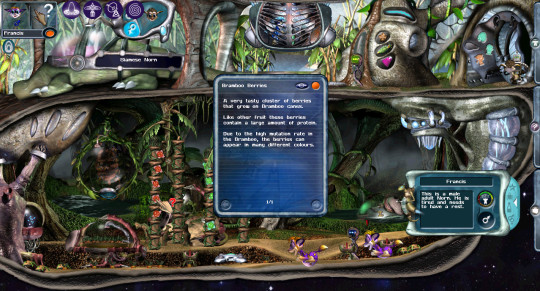
The PC game series of Creatures 1, 2, and 3, Petz 1-4 (unrelated to the later console games series) are prime examples of this genre. Creatures leans more heavily on the science element, but still had a meticulously crafted art style of cute huge googly eyes and big smiles that used pre-rendered sprites. Petz used a very unique 'slap together orbs until you've got a dog' art style.
It's absolutely wild that that genre has withered away. Sure there are tiny indie games that have some similarities, modern petri-dish style games like Gridworld don't quite hit the mark, and it's obvious why:

It's missing the mass appeal. It's missing the googly eyes. This is never in a million years going to pass muster to a kid who asked for a puppy for christmas. This isn't to disparage on the Gridworld dev (singular), it's just a bit odd that the mass-marketed type of A-Life disappeared from the mainstream.
The shallowest argument would be that the dominant art style changed, or that 2D games are no longer popular, but that's not an argument, because it would be possible to make a similarly cartoony animal system in 3D (Spore! Spore has that! but NOTHING EVOLVES IN THAT DISAPPOINTMENT-), and because there are plenty of 2D games still.
I dunno man. Both Creatures and Petz have small, scarily dedicated fanbases wringing absolute miracles out of decades old engines. But what happened to the zietgiest of A-Life? Why, when AI is on the upswing stronger than ever before, is nobody saying "put that shit in a cartoon cat... we'll all be millionaires!" like they used to?
24 notes
·
View notes
Text
Specific Trope of the Day
A neglectful genius father loses his son and makes a fake version of him to cope
19 notes
·
View notes
Photo





“I Love It So Much It Hurts”
More biosynthetic-gelatinous gastroneural companionship partners (brainslugs)
Ghost Owl Attic
#companion#artificial#artificial life#ai#biosynthetic#neural#neural network#futurism#cyberepunk#aesthetic#futuristic#mind#synth#synth life#brainslug#mindslug#parasite#synthography#never be apart again
97 notes
·
View notes
Text
Interesting thought for a topic of debate:
How trans or cis is Data's daughter, Lal? Consider that she was mostly built before choosing her own appearance, and that the other choice she had boiled it down to was a male klingon.
#star trek#star trek the next generation#sttng#tng#data#lal#data's daughter#the offspring#trans#artificial life
10 notes
·
View notes
Text

Source: XSULLO
#cyberpunk#games#gamer#video games#playstation#anime#geek#gaming#robotics#robot#artificial life#artificial intelligence#AI#art#fantasy art#artistic
21 notes
·
View notes
Text

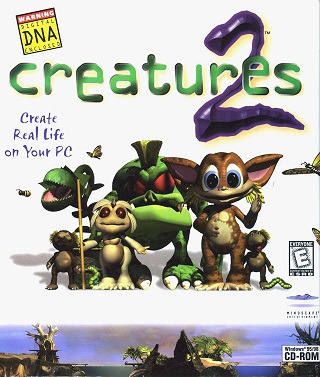

#spinterest#creatures#creatures 1#creatures 3#creatures 2#old games#retro#early computer games#computer games#creature#norn#grendel#a-life#artificial life#artificial life games
52 notes
·
View notes
Text
Bleeding Blue
A prompt based on five different uses for the phrase:
The notion of royalty having blue blood. Traced back to Medieval Spain, if the prompt takes this as inspiration, it is related to the death of someone in a royal bloodline.
Based on the documentary by the same name detailing real life police encounters, under this interpretation the prompt would refer to anything related to death involving the police - either an arrest, a detective AU, and the like.
In the world of Detroit Become Human, the component Thirium is fundamental in the creation of lifelike androids. It also has negative effects on humans. Under this lens, the prompt refers to robotic life, AI, sci-fi elements in general, or even how these elements can be used to kill a human.
On a different note, spiders and other animals have blue blood due to the components of their blood. This interpretation can hence be used as arachnid-related deaths. Whether having an arachnid die, or being involved in a death, is up to the author. Sky's the limit.
On the topic of blood being literally blue, the medical condition methemoglobinemia can cause blood to turn blue. It is a fatal condition with a variety of causes, including otherwise inoccuous medication. From this standpoint, the prompt refers to cyanotic characters and death by illness.
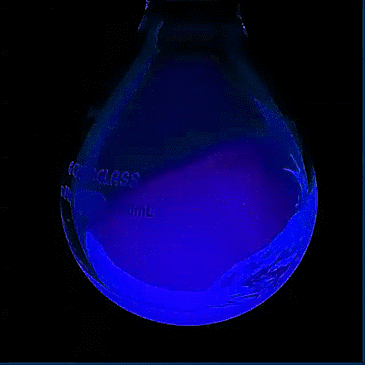
#killacharacter#killacharacterbingo#writing challenge#bingo challenge#writing event#whump#writing bingo#whumpee#bingo card#whump prompt#blue blood#royalty#detroit become human#artificial life#spiders#arachnids
6 notes
·
View notes
Text
A little something for the ChaseMarsh fans
#life is strange#kate marsh#victoria chase#chasemarsh#fanfiction#artificial life#android au#cyberpunk
13 notes
·
View notes
Text
Alchemist A is the brightest living mind in the field of sciences, talented in their art and hubristic to a fault. They believe alchemy is akin to being God, and their obsession with creation has resulted in them creating a wholly artificial being, B, and keeping it for study. The achievement is astonishing and how it was accomplished is A's most guarded secret, but as it becomes clear just how many consequences A's ill-advised meddling has, B becomes more and more horrified about what they discover A has done to create them.
Like my prompts? Leave me a tip!
#otp#otp prompts#imagine your otp#writing prompts#ship prompts#story prompts#character prompts#angst#alchemy#alchemist#monster x creator#artificial life#homonculus
24 notes
·
View notes
Text



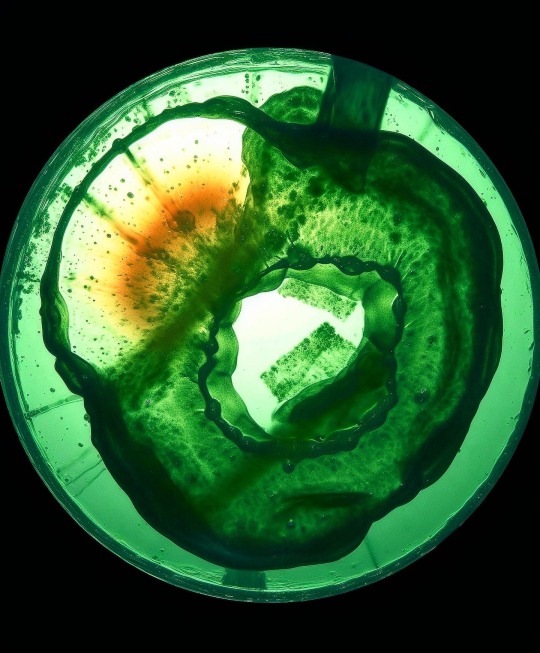

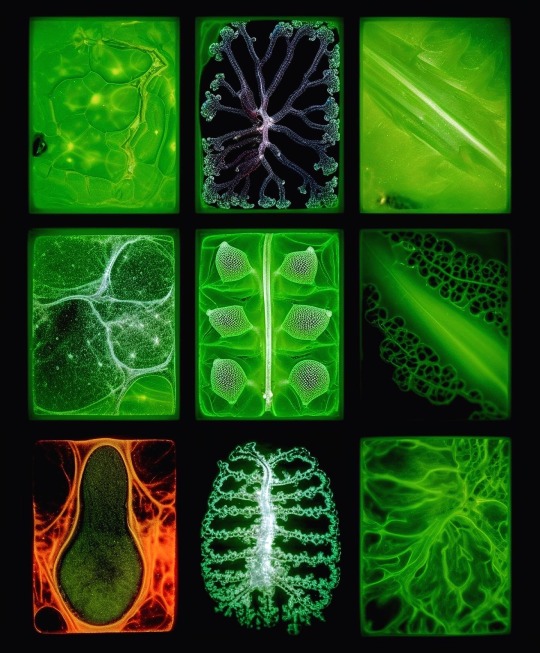

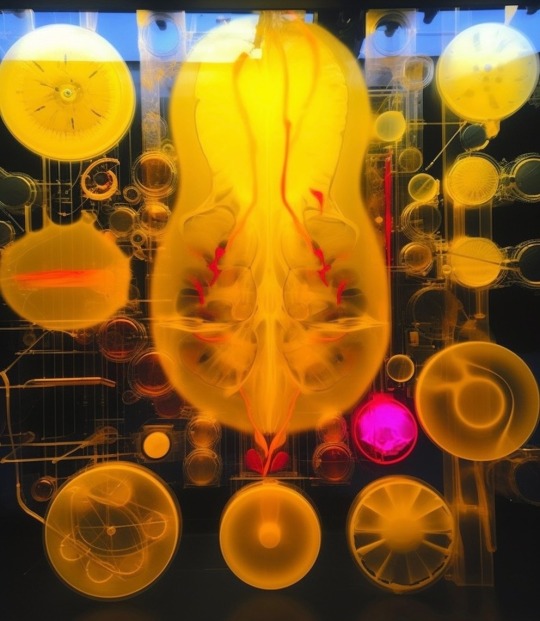

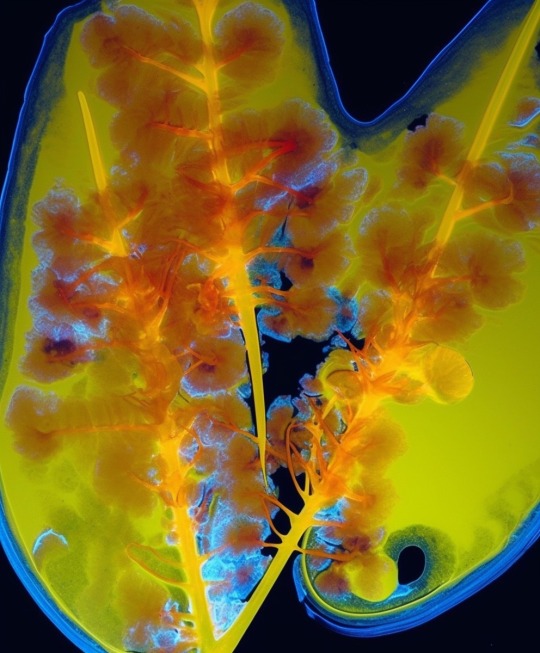
#ai artwork#branding#design#illustration#movies#books and libraries#concept art#biology#biotechnology#graphic design#creative#nonprofits#web series#album cover#magazine#artistsoninstagram#digital art#artificial life#science#technology#beauty#product design#packaging#website#aestethic#wallpaper#art#photography#lightroom#ai image
11 notes
·
View notes
Text
brainwormed about (higher) order of complexity
like a cell in your body is a single agent who is reacting to impulses. but it is not aware that it forms a giant organism which acts as a single agent itself. being capable of things beyond the single cells comprehension
or a single person is capable of acting in society but you are (unless you purposefully study them) not aware of the bigger dynamics of sociology
etc etc
one layer is only aware of itself. you have to purpusefully figure out the lower and higher orders (like the internet protocol suite lol (cursed that i know that (ironically do not care about low level computer science)))
9 notes
·
View notes
Text
Fall Theories on Blood Magic, Homunculi, and King Midas
This was originally going to be my last, long, pre-Fall prediction post. I had other, shorter posts with Rise thoughts and lesser theories, but I don’t have the time to post everything. So, I will likely post those when I go to post Fall thoughts after reading. Even if they become outdated, I may adjust them, or note that they were pre-Fall. Also, I aim to finish my second and final Fall prediction fic before May 2, but I may not. Even if it’s late, I’ll post the fic just in case anyone wants it.
⸻
First, for context:
“A homunculus “[...] is a representation of a small human being, originally depicted as small statues made out of clay. Popularized in sixteenth-century alchemy and nineteenth-century fiction, it has historically referred to the creation of a miniature, fully formed human. The concept has roots in preformationism as well as earlier folklore and alchemic traditions” (Wikipedia).
“The homunculus is a diminutive humanoid creature believed to be created through magical alchemical means” (“Medieval Scientists Tried to Make Little People with Semen, Blood, and an Animal Womb”).
“The Kabbalah, for example, includes legends and stories about the alchemical homunculus, or "little man," and the golem, a kind of proto–Frankenstein's monster. In both cases the idea is that through certain secret magical practices, human beings can share in the creative power of God. To the orthodox believers of both Judaism and Christianity such a notion is considered blasphemous and betrays either the hubris of humanity or the work of the devil” (“Homunculi, Golems, and Artificial Life”).
“Prior to the rise of science and the mechanical vision of human life and the universe, the idea of creating human simulacra had a strong organic foundation. The homunculus was something one grew; the popular belief was that homunculi could be grown from the mandrake root, whose shape lent itself to anthropomorphic speculation. The golem, too, although not quite as organic as the homunculus, was nevertheless not pieced together bit by bit, as Mary Shelley's monster would be; it was fashioned, molded from clay or soil and then miraculously brought to life” (“Homunculi, Golems, and Artificial Life”).
“For the alchemist, matter was not the dead, inert stuff it is for us: it was a living body, one that could respond to a person's attention. As the alchemists transformed the matter in their alembic through the alchemical process, their own inner world experienced similar changes. The entire process centered on the idea of rebirth. The alchemists were to "die" in a sense—to lose their earthly, mortal being—and, if the procedure was successful, would be reborn” (“Homunculi, Golems, and Artificial Life”).
“Death was an essential aspect of the alchemical process; it was out of death that new life could emerge, as it did in the Frankenstein's monster. In Paracelsus's recipe for the homunculus, the horse manure represents the putrefaction needed to begin the process of rebirth. This is the first step in the alchemical work. The old self, the old Adam, must be broken down until we arrive at the prima materia, the primordial stuff, the unformed matter out of which any future creation can take place. The forty days in which the sperma is buried in the horse manure parallel Christ's forty days in the desert, when he is tempted by Satan. This means that the alchemist must undergo trials, must endure some suffering, and that the alchemical process is not something going on outside of oneself but is something that must be lived through. This is also suggested in the idea that the homunculus, the little man who is the alchemist reborn, must be fed by the alchemist's own secret blood. The alchemist's attention, concentration, mind, or soul must be completely focused on the task variously known as the creation or discovery of the philosopher's stone, the elixir of life, potable gold, the universal solvent, and, very often, the creation of the homunculus depicted in numerous alchemical illustrations, often as the god Mercury encased in the alchemical vessel” (“Homunculi, Golems, and Artificial Life”).
“That the alchemists would speak of this in parable, allegory, and obscure language shouldn't be surprising. It's difficult enough for us, who have the advantage of familiarity with self-help and psychotherapeutic literature, to grasp the meaning of rebirth. For the literal-minded of the Middle Ages, who were taught that all magic and occult knowledge was the work of the devil, this would be a subtle notion indeed. The idea that by going through the alchemical rebirth, one would become as Christ—regenerated—would strike them as blasphemous. What was left was the literal idea of making an actual man or woman, just like the idea of making actual gold from lead or finding an actual stone. Yet a famous alchemical maxim reads: "Our gold is not the vulgar gold." Clearly, making material gold was not what they were after. Creating an actual tiny human being was always recognized as a display of power that went beyond nature. This is a dim and distorted echo of the alchemists' belief that their art was against nature in the sense that it both sped up a natural process and redeemed its practitioners from a life lived solely at the natural, Adamic, unregenerate level” (“Homunculi, Golems, and Artificial Life”).
“The imperfection of their creature shows that the magicians, no matter how knowledgeable, are still far short of God, a point that contemporary advocates of "man-made humans" may wish to ponder” (“Homunculi, Golems, and Artificial Life”).
⸻
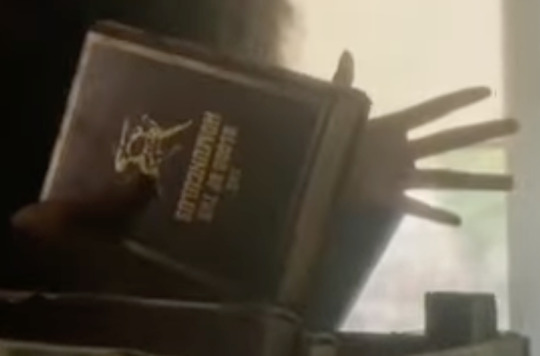
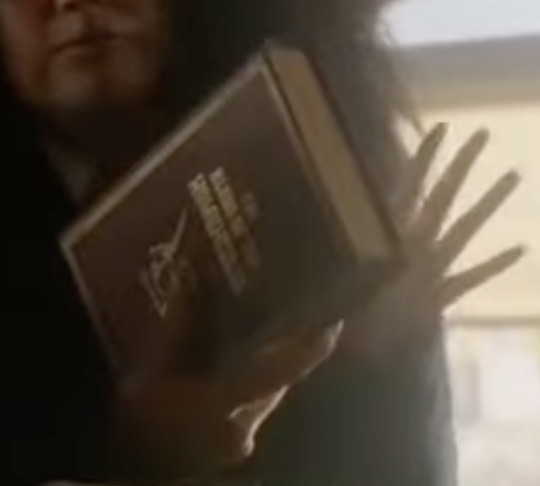
For background, we know blood magic exists not only in the SGE movie but in the world of the books, to some degree. In the movie, Agatha holds a book called The Blood of the Homunculus, and coincidentally or not, it’s a red and gold book, like Fall. Otherwise, we do know a few other things surrounding blood magic from the main series.
In TLEA, the old heroes of the League of Thirteen, or rather, I think just a select few, paid off a witch to retain their youth or extend their lifespans with a life-extension potion, concocted from an odd mixture of blood and gold. The life-extension potion was also mentioned in the Handbook as well.
Something similar is mentioned in passing in Rise as well. The Pirate Captain was rumored to live on an elixir of blood and gold that kept him from aging. Though, I’m not sure whether you can gain true immortality from the potion. I think it is just a way to artificially prolong a life.
Thus, this potion could potentially have a more prominent role in Fall, especially considering the visual elements of the cover. Rafal and Rhian are dressed in blood red and gold outfits, and if that is not a massive indicator of a plot element, I don’t know what is. I think it’s quite likely that the groundwork has already been set up in canon, in TLEA, in the Handbook, in Rise.
Also, I find the usage of colors on Fall’s cover odd in general. There are probably some symbolic connotations or plot hints, but weirdly enough, I almost never associate Rafal with the color red. (Aside from the Handbook trivia that Sophie named a nail polish color from the line she designed Rafal Red. But, that is her interpretation, not mine. I associate Rafal with black, silver, dark blue, ice blue, and either emerald green, or a cold, wintry, firefly, radium-esque green. I’m convinced he renovated the Schools in TLEA to match Sophie’s eyes, whether it was a conscious decision or not.)
There was also a mention in Rise, I think, about Rafal being capable of using blood magic, as related to his ability to fly, and that Evers can’t use blood magic, which is why Rhian swims. I think this could be proven false, if Rhian goes as far as to do something with blood magic in Fall though.
⸻
My theories regarding blood magic would have to be related to possession, resurrection (likely gone wrong), or raising an army.
I think there is a chance that Rafal could become obsessed with blood magic, and would possibly want to restore the state of the world to its Balance, the natural order of things, but in an unnatural, drastic way, by extreme methods, possibly to also retain his and his brother’s original Good-Evil roles.
If Rafal were possessed by blood magic, corrupted by some new, villainous force or his own greed, then it could explain any out-of-character characterization or his presumed murder of Rhian. Otherwise, he may just be temperamental, unstable, or too ambitious for his own good.
Also, that reminds me, in this particular possession theory, Rhian, no matter what he tries, will not be able to countermand the effects of the blood magic on Rafal’s psyche. The thought brings to mind this excerpt from Beasts and Beauty actually:
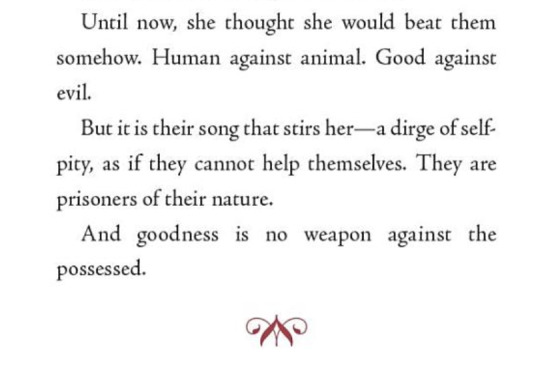
And, because the brothers have lost their immortality, they probably need something more: a functional replacement for their former power, more powerful magic than whatever they already have, than their preternatural sorcery, to fix all their problems. The two could see blood magic as the solution to all their problems because desperate times call for desperate measures, and they would become possessed by it as a result of giving up their free will to use it, or through selling their souls in some way or another. I think in many cases, magic tends to come at a steep price, but whether that actually applies in this case, I don’t know. And, by using blood magic that is intrinsically tied to life, they’d also be inadvertently too prideful, bringing about their downfall.
If one of the brothers dies, the other could use blood magic to grant him artificial life, returning as a hollow, empty shell of his former self, a vessel that isn’t quite alive in the typical sense. But, in most literature, having the power over life and death, and giving artificial life tends to be a sort of taboo. It’s simply not ethical, so by doing this, one of the brothers could be crossing the line because it is always dangerous and too prideful for humans to play God. I bet the Storian would not like this at all. Also, if resurrecting one of them backfires or doesn’t work, the brother who’s left alive could spiral into a depression, and could still have some involvement with blood magic or a descent into insanity as well.
For example, if Rafal is alive, he could then, hypothetically, artificially prolong his life after his brother dies, and he wouldn’t have True Love to actually sustain him and his youth. He would continue aging, but his lifespan would be abnormally long, and he’d likely suffer.
Also, this whole creation-of-a-life-through-magical-means is strangely reminiscent of the Spansel from TCY. And, all of this could share similarities with Rafal’s AWWP resurrection and his resurrection of the Old, fairy-tale villains. So, any of these possibilities aren’t wholly implausible.
Another possibility is that Rhian and Rafal, having no support, decide to raise an army of homunculi under their exclusive command to fight Hook, or to contend with any other probable villains of Fall. To back this idea, there are certain existent mythologies with creation stories wherein the human race are little figures sculpted from clay.
Also, any inclusion of such magical or elevated “technology” could be culturally-relevant today, or serve as commentary on current issues regarding genetic modification and the boundaries of what is and isn’t ethical. And, in crossing such ethical lines, Rhian and Rafal could change their own psychology, their inner worlds, by performing blood magic, or tampering with human life.
(This also makes me question whether the brothers have Celestiums. Regardless if they do or do not, I actually have plans to write Rafal’s Celestium someday. It’s already outlined.)
If these ethical debates are transferred over to the context of fantasy literature, to fit thematically into Fall, they could easily be a mirror to our world also. So, including something like this with broader parallels to our world is something Soman could potentially do with the many ways artificial life could come into play in Fall’s plot.
⸻
Then, to go one step further with the blood magic theories: King Midas could be involved.
What if King Midas replaced Rafal, and is the School Master in the main series?
He certainly has the means to do so. He literally has an endless supply of gold at his fingertips. And, he could easily commandeer the Night Crawlers to supply him blood, like how Rafal negotiated with them, and exchanged Hook’s blood for passage to the underwater prison.
This could all add up to Midas abusing the life-extension potion to grant himself near-immortality.
#school for good and evil#rise of the school for good and evil#rafal#rafal mistral#rhian#rhian mistral#sge#sfgae#the school for good and evil#tsfgae#rotsge#rotsfgae#my post#my predictions#my theories#my analysis#king midas#blood magic#artificial life#homunculus#homunculi#elixir of life#life-extension potion#blood and gold#color symbolism#symbolism
11 notes
·
View notes
Photo




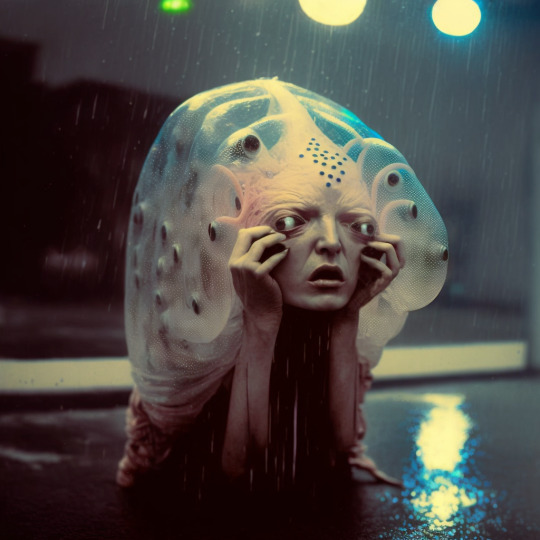
“I Love It So Much It Hurts”
biosynthetic-gelatinous gastroneural companionship partners (brainslugs)
Ghost Owl Attic
#brainslugs#beloved#loved#love#its your everything#synthetic#pain#brain#hurts#you'll never want to be apart#technology#tech#artificial#artificial life#synthography#slug#parasite#symbiosis#dependence#ai#science fiction#horror#rain#future#futuristic#cyberpunk#mj#zbrush#night#noir
66 notes
·
View notes
Text

The best navigator I've seen in the six years of making Crescent Loom was just posted to reddit. It can locomote, it can gradually redirect, and it can do quick turns.
It's work of art that literally brought a tear to my eye.
Ironically, it's called "mediumstupid"
10 notes
·
View notes
